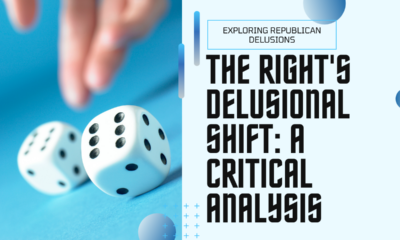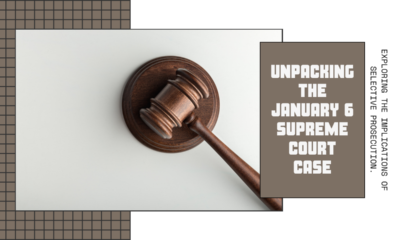Editorial
Bottom-up economics?

Barack Obama yesterday used the phrase bottom-up economics to describe his favorite economic policies. He is wrong on two counts. First, his “bottom-up economics” would be belly-up economics. Second, he misused the term.
“Bottom-up economics” nothing new
Obama and his supporters used that bottom-up economics phrase once before. They used it as far back as August 28, 2008. In October of 2008, former Labor Secretary Robert Reich used that phrase, too. Ironically, in that piece he opposed the Wall Street bailout. (Ironic, because his good friend Barack Obama not only didn’t roll it back; he doubled down on it.) At the end of his piece, Reich told the world what bottom-up economics meant to him:
- Universal health insurance, or at least government subsidies for that.
- Free schools and colleges for everyone.
- Massive “infrastructure” projects.
- “Green technology.” (How well did Solyndra or Light-squared work out?)
- Progressive taxes. (In fact he wrote as if we did not already have them.)
So now, three and two-thirds years later, Obama mentions this again. Obama must mean the same thing now that Robert Reich meant nearly four years ago. He also has been doing it for all those years. Now he promises four more years of the same.
What does “infrastructure” mean?
The word infrastructure might confuse people. Classically it means all the things that a civilization runs on. It could mean roads, rails, water wells, water wheels, aqueducts, water mains, water pumps, reservoirs, and electric lines. In short, it means transportation and utilities.
Neither Robert Reich nor Barack Obama should talk about such grand projects. They oppose at least half of them on general principle. They have signed on to a program (UN Agenda 21) to get the world’s people out of their cars, and jam them into very dense cities. So road-building would be the last thing they would want to do. Yet the federal government does finance road-building. Everyone remembers the “shovel-ready project” signs that replaced the usual “Your Highway Taxes At Work” signs.
Why “bottom-up economics”?
How is “bottom-up economics” supposed to work? Those who work on road-building, for instance, draw paychecks, and thus have money to spend. That, of course, is their idea of “bottom-up economics.” Give people “at the bottom” some money to spend, and they’ll spend it. Then those having anything to sell to them, will do better.
But where does the money come from for subsidies, free schools and colleges, road-building (or building “arcologies”?), and “green tech”? Those who define “bottom-up economics” this way, will say: Taxes. But now: where does the income come from, for the taxes to bring in enough revenue? Do well-off people have their own source of limitless wealth, like a money tree? Can a tree like that grow only in a rich man’s yard? Some progressives have an even more extreme opinion: rich people got rich by stealing from everyone else. Hence the taxes: either to let “the rest of us” get some good out of the fabulous money tree, or to take back the wealth they “stole.”
What really happens
[ezadsense midpost]
“Bottom-up economics,” as Reich defined it, will always fail. First, what you subsidize, will repeat. In the case of health insurance, this removes any incentive to stay well, avoid accidents, or even think how to do these things. Second, college often does not get people ready to get a job. (Any jobs open for art majors?) Third, many government programs simply pay out money to the favorites of government officials.
But more to the point, wealth does not “grow on trees.” Nor does the amount of wealth stay constant in any society. People produce wealth. But government cannot produce wealth; it can only take it. Any money that the government spends, someone else cannot spend. So at best, government “stimulus” is a wash. At worst, it truly is literal theft, as in the Solyndra and Light-squared cases.
The real bottom-up economics
During Obama’s first year, Robert Reich doubled down on defining “bottom-up economics” this way. Three letter writers disputed him within days. Of the three, Ray Galkowski of Princeton, NJ put it best:
Mr. Reich [gives a prize example of] what Friedrich Hayek once called the “fatal conceit.”
What is that “fatal conceit”? It is the idea that any person, especially a government official, can know in advance what means he will have to plan the economy of an entire society. One cannot know this. (For example, the Congress could not know that “cellulosic ethanol” would not be available by a deadline that has recently passed.) But progressive politicians are still conceited enough to think that they can find out, or slap enough people with subpoenas until someone tells them.
Galkowski then pointed out that what Reich calls bottom-up economics is really top-down economics. The “top” is government. The real “bottom” is not those who get subsidies or government jobs. It is free people thinking of ways to do new things, or to do old things better than people are doing them today. It is also free people deciding what they want and finding ways to make it or get it, usually by honest trade. Government cannot possibly decide for millions of people. Even to think it can is a conceited idea.
Barack Obama earlier said that when people vote in 2012, they will choose between two fundamentally different theories of government and its role in people’s lives. Everyone can agree on that. Now we know what role Obama sees for government. But does he begin to understand how an economy really works?
Visit msnbc.com for breaking news, world news, and news about the economy
[amazon_carousel widget_type=”ASINList” width=”500″ height=”250″ title=”” market_place=”US” shuffle_products=”True” show_border=”False” asin=”B00375LOEG, 0451947673, 0800733940, 0062073303, 1595230734, 1936218003, 0981559662, 1935071874, 1932172378, 1936488299″ /]
[ezadsense leadout]
Terry A. Hurlbut has been a student of politics, philosophy, and science for more than 35 years. He is a graduate of Yale College and has served as a physician-level laboratory administrator in a 250-bed community hospital. He also is a serious student of the Bible, is conversant in its two primary original languages, and has followed the creation-science movement closely since 1993.





















